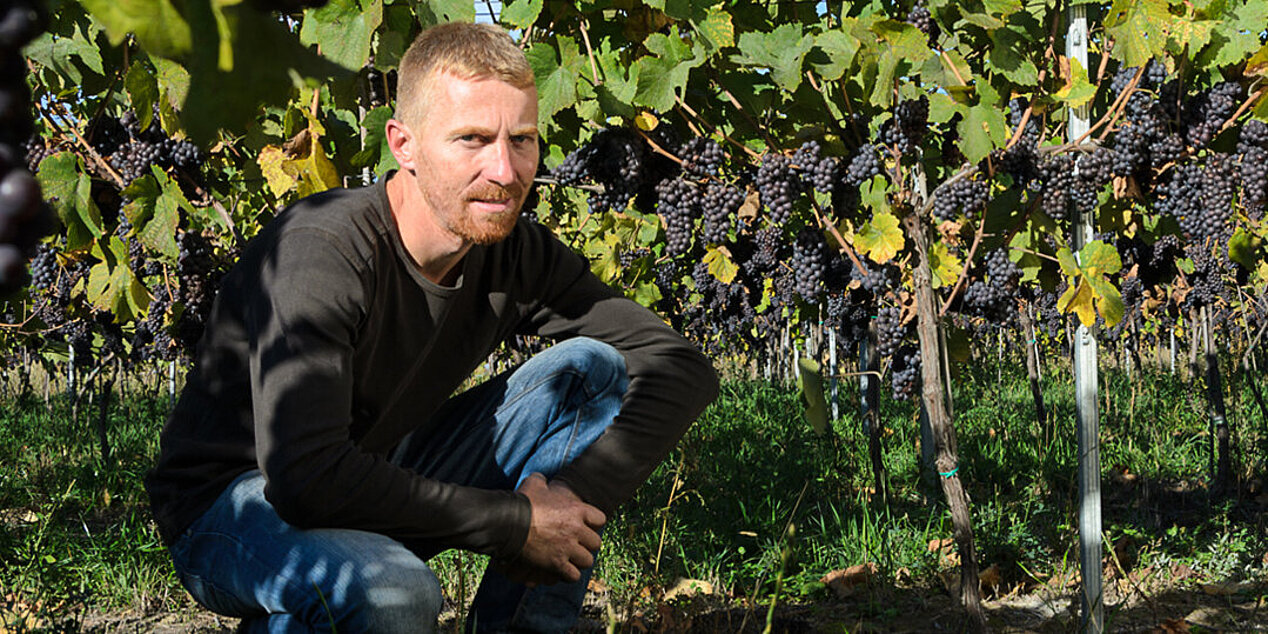ifa: Josef, you're from Lower Bavaria and were a cultural assistant for ifa at the German Forum in Romania from 2001 to 2003. What did you like so much about it there that you decided to stay?
Josef Sporrer: I travelled to Romania for the first time in 1996 and was immediately taken by the country. After studying agricultural management in Freising near Munich, I absolutely wanted to go back. Then while working on my degree, I came across ifa. They were looking for a cultural assistant to work with a German minority group in the city of Satu Mare in Romania. I fell in love with the country and have been living here ever since, growing wine and keeping bees.
People's openness made a lasting impression
ifa: Some time has passed since your ifa stay. What memories are still vivid from your work in Satu Mare?
Sporrer: The German Forum is an organisation that represents and connects German minorities in Romania both culturally and politically. From the very beginning, I was impressed by the openness of the people and the friendly working environment. When I arrived, a German-speaking children's choir welcomed me with German folk songs and traditional religious hymns. I was deeply moved by the virtuosity of these young people.
ifa: To what extent were you able to give back to the people in return for the warm welcome?
Sporrer: I mainly focussed on youth work within the German-speaking minority. In the German school, for example, I organised the school paper and was co-initiator of the first German Cultural Days in Satu Mare – a tradition that then continued for many years. The children’s choir I mentioned also played a role. I organised a concert tour with the youth singers through my old home state of Bavaria. I still remember the shows in retirement homes where the seniors teared up listening to the songs they recognised from their youth.
Music connects generations
ifa: After helping to create a youth culture, your life in Romania focussed on viticulture. How did this come about?
Sporrer: It was clear that I wanted to stay in Romania, so I took up my experience from my studies in agricultural management. I found the ideal place for viticulture on the border to Ukraine and cleared and cultivated the land. Now I sell a selection of my grape variety to local winemakers, producing several thousand litres of wine per year, and most of the wine is distributed throughout the country, including the German minority community. Occasionally, I participate in cultural events offered by the German Forum.
Interview by Holger Lühmann
At Home in the World: 25 Years of the Deployment Programme
From Germany out into the world – feeling at home at your next destination. In the Department of Integration and Media within ifa's Deployment Programme, this is possible. For 25 years, ifa Stuttgart has been sending editors and cultural managers to German-speaking minority groups in Central and Eastern Europe. This anniversary year, we present three former participants and their work.
Further interviews from the series 'At Home in the World':
ifa as a Stepping Stone into Berlin Politics
About the Deployment Programme
ifa's Deployment Programme offers organisations of German minorities support in tasks. Work stays in Central, Eastern and Southeastern Europe and/or in a state of the Commonwealth of Independent States last between one and five years. ifa cultural managers and editors work on selected projects at the selected organisations and support them with their know-how. The aim of the Deployment Programme is to convey a modern and vibrant image of Germany and to strengthen local organisations in their cultural bridging function between minority and majority.

